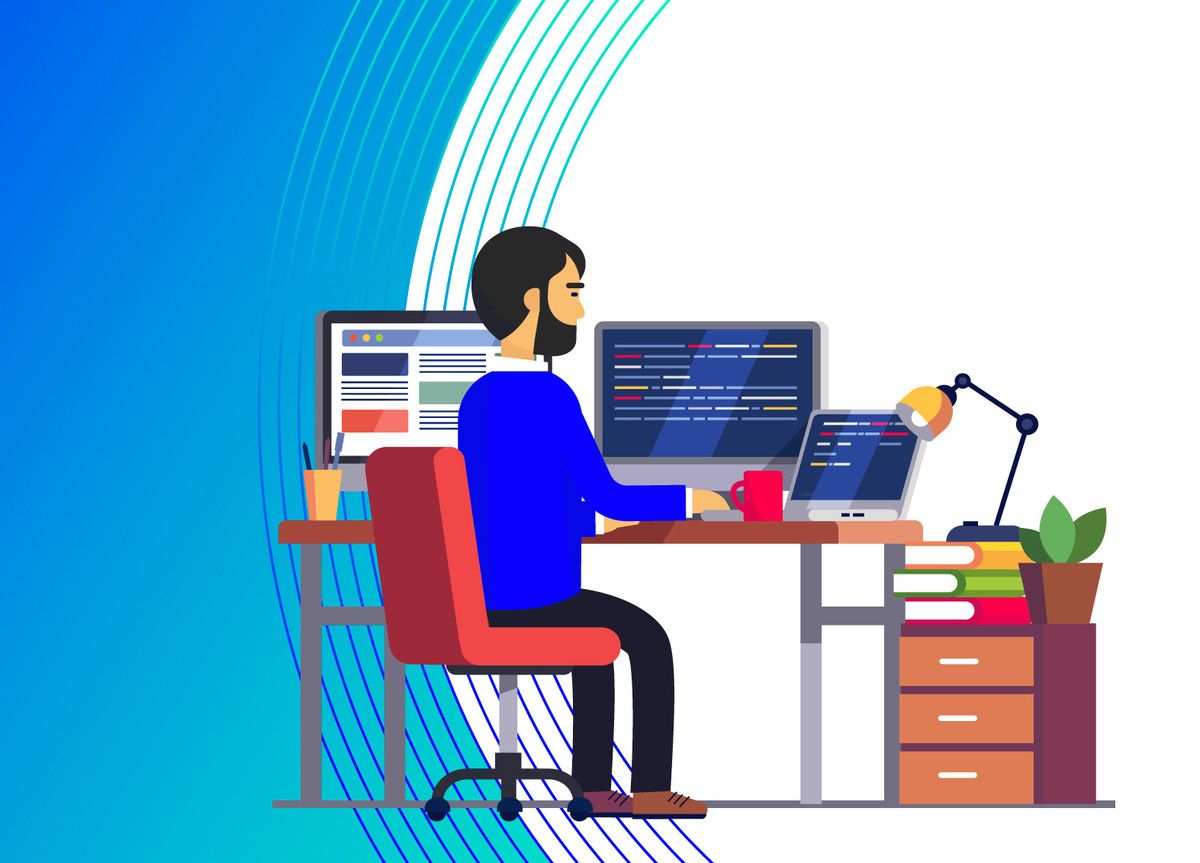How to Pass Three AWS Associate Certifications in One Month
For many years now the AWS Certified Solutions Architect - Associate certification has ranked as the most in-demand certification in the computing industry, with these rankings listing it with a median $120K annual salary. I always wonder when I read these statistics if there is a direct causation in effect (folks passing the certification get access to higher paying jobs) or a mere correlation (well-paid cloud architects and engineers tend to pass it).
Regardless of the impact holding a certification might have on your financial prospects, there are many beneficial reasons for studying and taking the exam, including:
- Improving your knowledge of the platform and technologies you might not have used before
- Giving you a leg up on cloud positions for which a certification is a bonus
- Getting your organization recognized as a partner
- Bragging rights when you are enjoying your club soda at the Certified Lounge at the next AWS Re:Invent conference.
At this juncture, chances are you want to pass an AWS certification to benefit from one or several of the above points. But you might have a few questions regarding the approach.
I am writing this post to share some of the lessons I learned while preparing and passing the three AWS Associate certifications (Solutions Architect, Developer and SysOps) in the span of one month.
P.S. Before I move on, check out some of our other articles on how to pass cloud-native tech exams!
- The Ultimate Guide to Passing the HashiCorp Terraform Certified Associate Exam
- The Ultimate Guide to Passing the CKA Exam
- How to Master the AWS Certified DevOps Engineer Professional Exam
- How to Pass the Google Professional Cloud Developer Certification
Choosing your Path
The first thing to determine is, what are your motivations and your desired end state? Are you interested in only learning the basics or as much as possible and becoming an expert?
In both cases, your first certification should be the Solutions Architect Associate (SAA). It is an excellent entry point to get familiar with the broad offering of services and learn the fundamentals of the platform (EC2, VPC, IAM, S3, RDS). It is also probably the single most recognized Cloud Computing certification, so If you are limited in time and could only pass one, this should be it. It also prepares you really well for the two other associate exams.
If you do have the appetite to take a few exams, your next step should probably be the Certified Developer Associate (CDA). In spite of the name, this certification is not just for Software Engineers and preparing it is valuable for anyone working with applications hosted in AWS. It used to have a significant amount of overlap with the SAA while covering deeper DynamoDB, Elastic Beanstalk, Lambda and ECS.
I think to pass the CDA also prepared me to take the SysOps Associate (SOA). It has the reputation of being the most difficult Associate level certification to pass and taking the exam made me realize why. You will need two things to pass it. First is the ability to pick out subtle cues in the questions to choose between two plausible answers. And second, an intimate knowledge of both the platform services (EC2, RDS, S3, SQS) and the management solutions to manage them (CloudWatch, CloudTrail, CloudFormation) is needed. Practice will help you with the former and training resources with the later.
Training Resources
AWS provides a variety of resources to learn about the platform services and how they can be implemented to satisfy frequent use cases. It might be overwhelming and easy to feel lost wondering where to start and what to study.
Your first stop will be the AWS Certification page and the Exam blueprints. They describe the scope defined in technical domains for each certification and their weighting in the percentage of exam questions. Try to read the recommended whitepapers at least one time, as they will help build background knowledge and perhaps score a few answers you might not have covered in other materials.
Your primary ally in preparing for the exams is a good online course website. You have many options with Coursera, Udemy, Linux Academy. I highly recommend A Cloud Guru (ACG) which is probably the best online resource on AWS. Ryan Kroonenburg and Faye Ellis are incredible at explaining the fundamentals and advanced concepts to the audience, regardless of the level you are starting at. Some of my colleagues had a good experience with Linux Academy, and one even recommended taking both Linux Academy and ACG. You can take both if you would like to be as prepared as you can be, but in my experience, ACG was amply sufficient for the Associate certifications (though it is likely a different story for the Pro exam).
If you are already feeling comfortable about some of the lessons (or crunched for time), you can watch the course videos at a higher speed (1.3 or 1.5x). This is useful to cut down your studying time by 20% or 30%. But do not overdo it, or you might find it difficult to grasp new concepts that can take time to absorb. And if you feel you did not understand something 100%, do not hesitate to rewind thirty or sixty seconds back to normal speed and give it another go.
You could also consider in-person classroom training, but unless your organization has the willingness to spend a couple thousand dollars for three days of live training, I would stick to online. Though if you live in New York or San Francisco, you can take advantage of the free training offered at the AWS pop-up loft. There are new topics covered every week and the friendly resident Solutions Architects give advice on existing and future cloud projects.
If you are serious about learning as much as you can from this experience and increasing your chances of passing the exam, you must practice in a lab environment. The good news is, it is incredibly cheap and easy to set up a sandbox AWS account (it is kind of the whole shtick about cloud computing) and build lab resources. And thanks to the free tier offered to new accounts, you can probably end up building and running all your lab resources for less than the price of a Starbucks Pumpkin Spice Latte!
Before taking the exam, definitely consider taking a practice one. It costs $20 and will test you on similar questions that you will encounter during the real thing. This will familiarize you with the format and scope of the questions while gauging your level of readiness. I personally did not take any practice exams, but I know many folks who found them useful.
Preparation Time
So perhaps one of the most important things you want to know is, how long does it take to study before taking the exams? And the answer is, it depends (I know, disappointing).
The longer answer would involve taking into consideration different factors. Already having working experience with AWS will make it easier and faster to prepare than starting from scratch. Following a self-paced training is great, but put the onus on yourself to choose the rhythm of learning. Having the possibility of dedicating a few days (or even a week) of full-time study will obviously be a huge advantage over studying in your spare time here and there. Especially if you have a demanding job taking a lot of your time and energy! And finally, this will all depend on your appetite and your timeline.
In my case, each certification took me a week to prepare, which was a bit aggressive, to be perfectly honest. To avoid postponing and to keep me on track, I scheduled each exam before starting the preparation. This forced me to make time to study even with a busy work schedule. It took me an average of twenty hours per certification, spread between evenings and weekends.
My advice is to study for one certification exam no less than one week and no more than one month. The reason for that is because of a neuroscientific phenomenon called the spacing effect. Our brains are wired to optimize memory storage depending on the importance of the information. The memory of something you learn and need in the short-term will quickly decay after a few hours or days. More frequently accessed information gets committed in long-term memory for easier future retrieval (yes, just like a cache). If somehow, you are a neuroscientist and read this blog (interesting Venn diagram), I do apologize for the oversimplification.
So why does this spacing effect have anything to do with certifications, you ask? Well if you try to cram all your studying into one or two days, you will probably retain enough information to pass the exam, but eventually forget most of what you learned shortly thereafter. On the other hand, if you spread your studying over a long period of time, you might need to spend more time refreshing your memory on the material learned at the beginning.
But it is a two-way street and you can use the spacing effect to your advantage. Learning works best by forcing you to recall a piece of information which strengthens the path of the synapses encoding the memory. But scientists found doing so at gradually increasing intervals optimizes long-term retention. So try to take notes in a format where important information is hidden behind a question, so you can easily test yourself. You can also use a flashcard app or website to help (Anki or Brainscape).
Feedback From Taking the Exam
You might not feel entirely confident or prepared before taking your exam. This is totally normal, there is a lot of material to cover and it is impossible to know every single detail of a massive platform (200 services and counting at the time of writing). To be perfectly honest, every time I took an exam, I thought there was a high chance I might fail. As long as you spent time studying your favorite course (ACG!) and practicing the exams, you should do fine.
It is useful to pay attention to the format of the questions. Usually, you will encounter the following types:
- One correct answer in a selection of four. Usually, two of the answers are far off the mark and are there to distract unprepared test takers with noise (distractors). Two of the answers seem plausible, but one is either the only correct answer or a slightly better way of doing what is asked. Pay special attention to the question wording, sometimes the clue is given by using keywords (“most reliable, cost-efficient company, the best way,” etc.).
- A multiple-choice answer with two or three correct answers out of four or five. Sometimes, you will hesitate between more options that you can pick. I personally find it useful to start by checking all the answers and then proceed by elimination by unchecking the wrong answers until you are left with only plausible ones. If you still end up with more answers than you should, the elimination process allows you to focus on the most likely answers without having to keep track of the distractors.
The new version of the exam takes 135 minutes to answer 65 questions. This was more than enough time for the Solutions Architect and Developer, which I completed in a little over an hour. The SysOps exam, however, took me almost the entire time. I took a few minute-long mental breaks to regain my concentration, but by the end, I submitted the results with 15 minutes left on the timer. In my opinion, the questions required much more thinking about the nuances between services and identify which of two plausible answers might apply best to the context of the question. I often found myself rereading the question to make sure I was not missing anything.
Overall, the Solutions Architect exam was easier than I expected. The Developer exam had a few questions about how to define dependencies in Lambda that I did not cover in detail during my studies. And because of my infrastructure background, it felt a little harder than the Solutions Architect. But the toughest of them all was without a doubt the SysOps exam. It was not so much for me the subject of the questions (my SysOps score was slightly higher than the Developer) than the time and effort needed to fully understand the questions and subtleties between answers.
Conclusion
I hope this post was useful and helps you prepare your study plan before taking the AWS Associate exams. Let me know if you take the exam, I would be happy to hear your own experience and journey! And when you do pass the three Associate certifications and feel up for the challenge, you can start looking into the AWS Professional certification level: DevOps Engineer and Solutions Architect.
I am now taking a “break” to prepare for my Google Cloud Professional Cloud Architect, but I will definitely write another post if I pass them!




